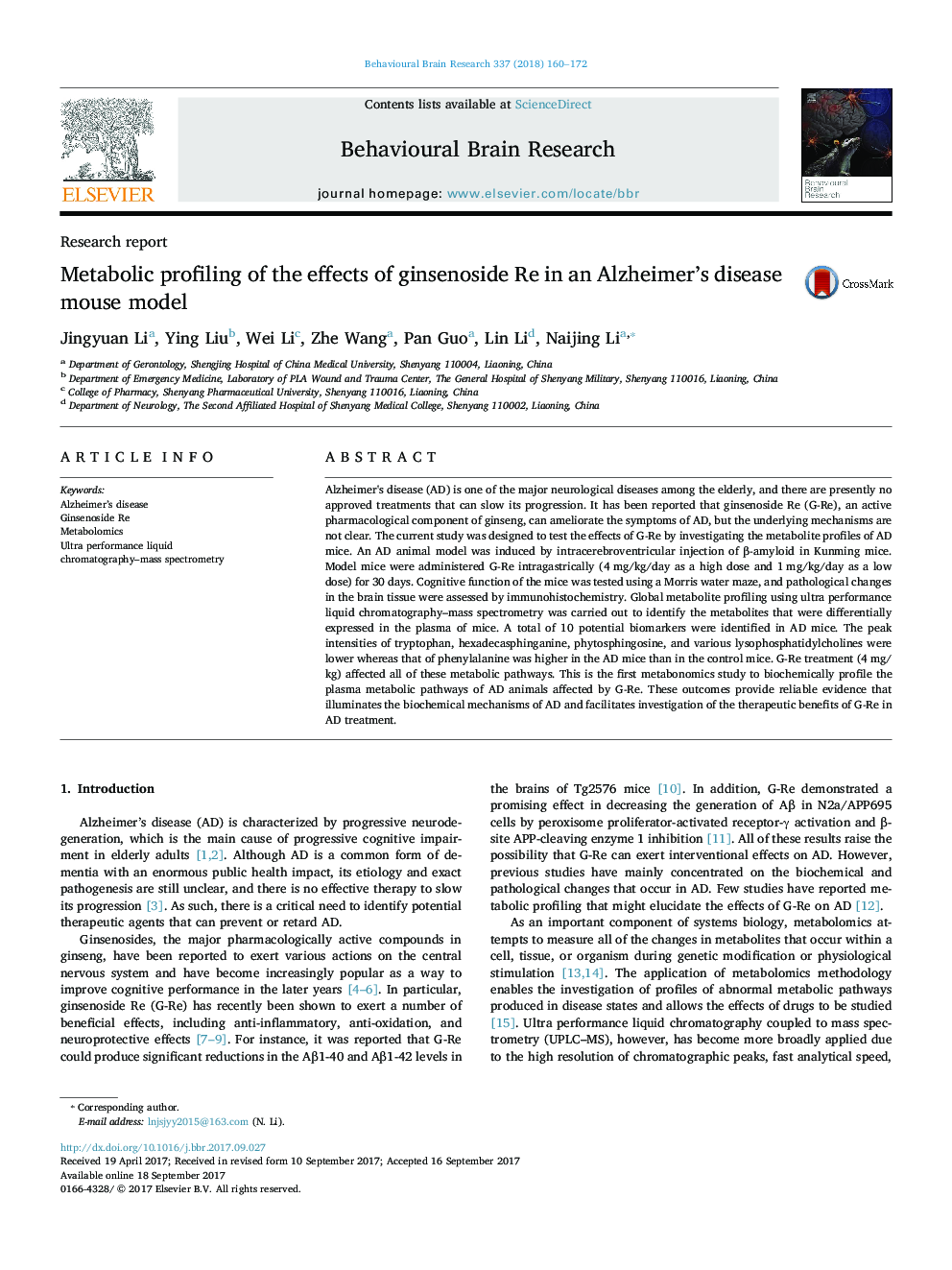| کد مقاله | کد نشریه | سال انتشار | مقاله انگلیسی | نسخه تمام متن |
|---|---|---|---|---|
| 5735265 | 1612898 | 2018 | 13 صفحه PDF | دانلود رایگان |

- Ten biomarkers in Alzheimer's Disease mice were found based on metabolomics.
- Ginsenoside Re treatment effectively improved cognitive function.
- Ginsenoside Re treatment noticeably ameliorated hippocampal Aβ levels.
- Metabolic disorders in Alzheimer's Disease mice were restored by Ginsenoside Re.
Alzheimer's disease (AD) is one of the major neurological diseases among the elderly, and there are presently no approved treatments that can slow its progression. It has been reported that ginsenoside Re (G-Re), an active pharmacological component of ginseng, can ameliorate the symptoms of AD, but the underlying mechanisms are not clear. The current study was designed to test the effects of G-Re by investigating the metabolite profiles of AD mice. An AD animal model was induced by intracerebroventricular injection of β-amyloid in Kunming mice. Model mice were administered G-Re intragastrically (4 mg/kg/day as a high dose and 1 mg/kg/day as a low dose) for 30 days. Cognitive function of the mice was tested using a Morris water maze, and pathological changes in the brain tissue were assessed by immunohistochemistry. Global metabolite profiling using ultra performance liquid chromatography-mass spectrometry was carried out to identify the metabolites that were differentially expressed in the plasma of mice. A total of 10 potential biomarkers were identified in AD mice. The peak intensities of tryptophan, hexadecasphinganine, phytosphingosine, and various lysophosphatidylcholines were lower whereas that of phenylalanine was higher in the AD mice than in the control mice. G-Re treatment (4 mg/kg) affected all of these metabolic pathways. This is the first metabonomics study to biochemically profile the plasma metabolic pathways of AD animals affected by G-Re. These outcomes provide reliable evidence that illuminates the biochemical mechanisms of AD and facilitates investigation of the therapeutic benefits of G-Re in AD treatment.
Journal: Behavioural Brain Research - Volume 337, 30 January 2018, Pages 160-172